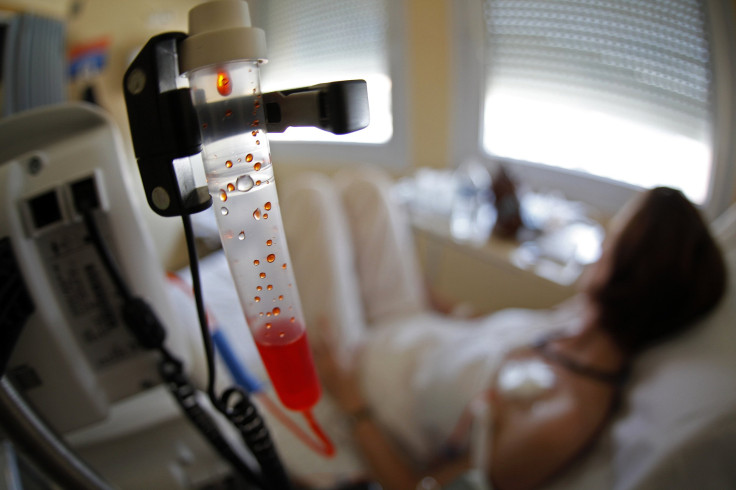Some Chemo Treatments May Help Breast Cancer Spread

Chemotherapy is one of the most effective cancer treatments available today, and is used on about 650,000 patients in the United States each year, but one study may have found a serious caveat to the treatment in certain patients. According to the research, a specific type of chemotherapy known as "neoadjuvant" may increase the likelihood of cancer spreading to other parts of the body in some breast cancer patients.
The finding, which is now published online in Science Translational Medicine, found that neoadjuvant chemotherapy can increase a process known as intravasation, which may increase the chances of cancer cells metastasizing in some breast cancer patients. At the moment, the finding has only been tested in mice and some living patient-derived tissue grafted into the animal models, but is still strong enough to warrant further investigation, IFL Science reported.
“In this study we only investigated chemotherapy-induced cancer cell dissemination in breast cancer. We are currently working on other types of cancer to see if similar effects are elicited,” study researcher Dr. George Karagiannis told The Telegraph. “We are currently planning more extensive trials to address the issue.”
In the study, mice given the chemo treatment, which consists of a drug combination of paclitaxel after a dose of doxorubicin in combination with cyclophosphamide, did experience a decrease in overall tumor size. However, the animals also experienced an increase in intravasation, where the membrane surrounding the blood and lymphatic vessels became more permeable, allowing more cancerous cells through. The researchers noted that increased intravasation can be a catalysts behind cancer spreading.
Chemotherapy is a broad term used to describe the use of more than 100 different strong drugs to treat cancer, The American Cancer Society reported. The treatment is very effective at killing cancer cells, which in turn helps to prevent cancer from spreading; it makes the disease grow slower; and in some cases may even cure the disease. However, the drugs also kill other healthy surrounding tissue, and as a result, can have many serious side effects. These include: headaches, muscle pain, stomach pain, mouth and throat sores, diarrhea, constipation, nausea and vomiting. Perhaps one of the most recognizable side effects of chemo is hair loss. The treatment can also affect thinking and memory as well as sexual and reproductive health, Cancer.net reported.
Karagiannis told The Telegraph that his findings do not mean that breast cancer patients should forgo chemotherapy treatment, but rather suggests that certain women receiving this particular treatment should be monitored during treatment to ensure that the chemotherapy did not facilitate their cancer’s spread.
“One approach would be to obtain a small amount of tumour tissue after a few doses of preoperative chemotherapy,” he said. “If we observe that the markers scores are increased we would recommend discontinuing chemo and having surgery first, followed by post-operative chemo.”
Source: Karagiannis GS, Pastoriza JM, Wang Y, Harney AS, et al. Neoadjuvant chemotherapy induces breast cancer metastasis through a TMEM-mediated mechanism. Science Translational Medicine. 2017











